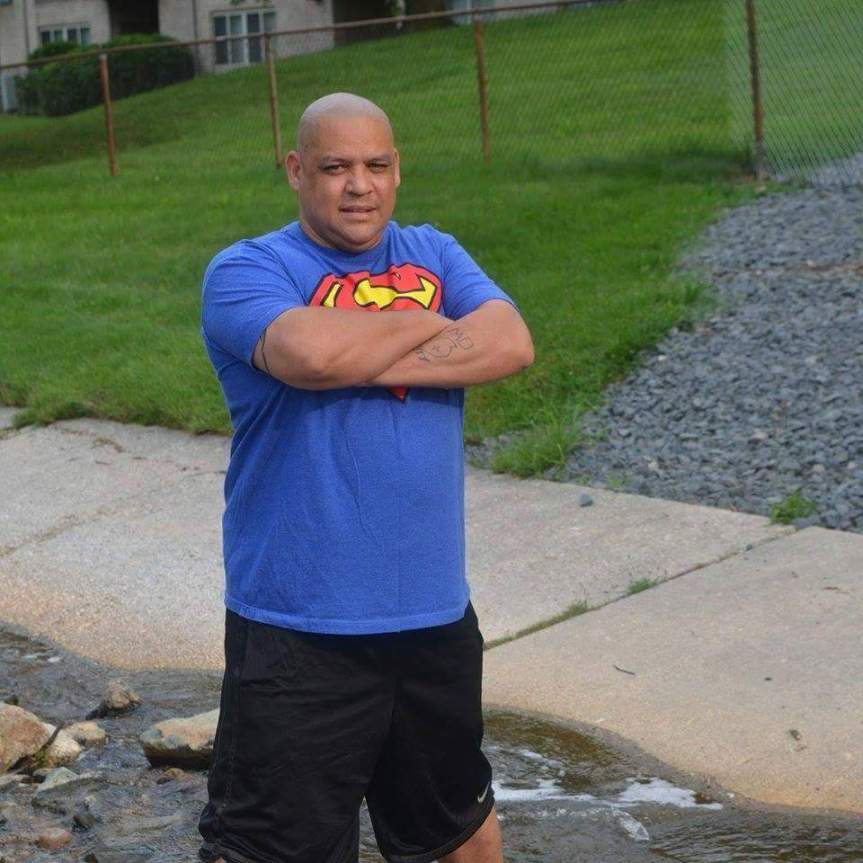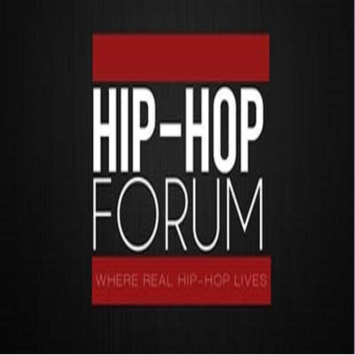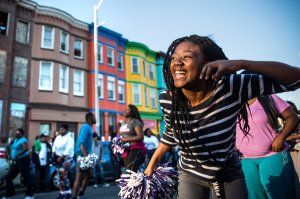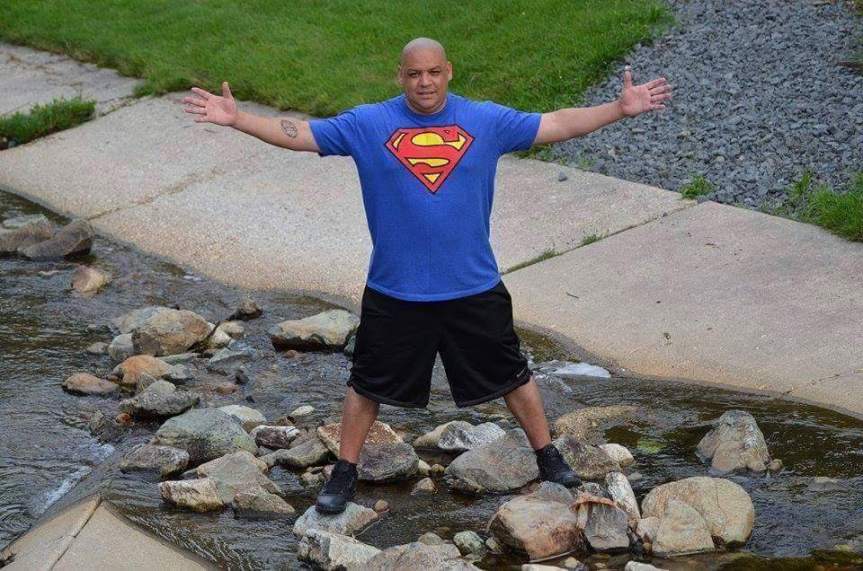In this interview, DC-based DJ Shaun Hilltop talks about the “Hilltop Radio Show”, the art of being a DJ, and the three major tours he’s been working on under the “Hilltop Radio Show Entertainment” name.
Interviewed by Michael ATG
HHF: Thank you, Sir, for taking out of your day to be a part of this interview. Starting off, you’ve been a DJ for over 20 years and grew up watching DJ’s such as Red Alert, Chuck Chillout, but were majorly influenced by your uncle, DJ Eric Thomas. Now my question is, how exactly did your uncle influence you to begin your career?
DJ Shaun Hilltop: (pauses) He influenced me because I used to go to radio stations at that time and load his albums up. Back in the day, the DJs at the radio stations, used to have the turntables. I would load the albums on the turntables for him that particular night, you know that he’s DJ’ing. And that right there kinda … kinda grew a passion, and a love for just watching him, you know DJ, and you know playing old school music from way back in the day. That’s what influenced me to be a DJ today.
HHF: So you basically just put everything in motion for him. You helped him get everything set up.
DJ Shaun Hilltop: Yes, yes sir I did. Sure did.
HHF: OK, years later, when you started off your name was DJ Big Daddy Shaun, right?
DJ Shaun Hilltop: Yeah, DJ Big Daddy Shaun was the DJ name I used in high school and when I got into college, in the college scene, I used that up until I took a break. And I went into officiating college football, high school football, and then I recently – and it’s about ten years now, I came back into DJ’ing, and changed my name to just DJ Shaun.
HHF: You’ve been all over with it and taken every outlet you could possibly take.
DJ Shaun: Yes. Weddings… family reunions… park jams… just little, little events. Anything I could get my hands on, I did it.
HHF: Now, I know of course in the DC Area, and the underground scene you’re a legendary DJ among the airwaves, and off the airwaves. I can say, from what I’ve seen, and what I know, the drive you have is impeccable, to say the least.
DJ Shaun: Right.
HHF: How do you keep it all together? What drives you the most to go so hard, and stay so focused, all these years that you’ve been in the game?
DJ Shaun: (pauses) People man. The artist. The real artist, that are real to the game, currently hip hop. So, so you know, they keep my drive, and my passion, and keep me motivated to be able to, you know, do my radio stations, go on the air and play the music that everybody wants to hear in the clubs, you know clubs, park jams, things like that, etc. The artist, you know, the listeners.
HHF: Ok, just the art of the music fuels you, I understand.
DJ Shaun: Exactly!
HHF: As an artist myself, I 100% understand that the music keeps you going man. It keeps you wanting to keep pushing, I definitely understand that one Sir.
DJ Shaun: And artist like yourself, that’s motivated, and putting 120% into your craft makes MY craft, even better because I know I’m getting good, positive music that the listeners, love, listen, and gravitate to.
HHF: We really bounce off of each other. You know, like, as you get fueled by us and that we push you… The DJ’s pushin’ our music and givin’ us those spins, that only motivates us to go even harder.
DJ Shaun: Exactly, exactly.
HHF: Right, it’s all one big vibe man, that’s how I look at it. And uh, speaking of….
DJ Shaun: (begins to speak)
HHF: I’m sorry, go ahead.
DJ Shaun: And let me jump on this thing. I don’t know if you’re gonna get to this question, I’m probably jumping a little forth, while it’s on my mind.
HHF: You’re fine, go ahead.
DJ Shaun: The art of being a DJ. Being a DJ is just not two turntables, a mixer, a microphone, speakers and a headphone. Being a DJ is you have to tell a story, while you’re mixin’ and scratchin’. You get what I’m sayin’?
HHF: Right, right.
DJ Shaun: It’s like you writing your lyrics, your lyrics are coming from your mind as an artist.
HHF: Yeah, from the heart.
DJ Shaun: And you’re writing it down, and you’re perfecting a story. You’re perfecting a craft. So people can be like, you know when they’re listening to your music, they can close their eyes and be like “Damn, you know I’m feelin’ him, I’m wit’ him on what he’s writing.” And that’s the way that I take my profession into the turntables, because here’s the thing. You wanna keep the crowd pumped up, you wanna keep the crowd on the dance floor.
HHF: Of course, of course
DJ Shaun: By all means necessary. When you know play that one wrong album, or that one wrong song, and people start walking off the dance floor… It’s hard to get them back on the dance floor. So it’s the same thing, DJ’ing is a craft. You have to tell a story with your music.
HHF: Right, you gotta make sure you keep they attention, keep ‘em tuned in.
DJ Shaun: Yessir.

HHF: OK now I know you manage a slew of quality, underground artist as an A&R for IMG records, under Universal Records.
DJ Shaun: Yes.
HHF: A couple of the artist includes; Patricia MyTime, who wrote for SWV, which is one of my favorite old school groups. Now with you managing those artist, you basically gotta, you know, help them along their way as to continue to perfect their own craft, so what’s really the main thing you try to teach your artist, while they’re under your watch to help them succeed?
DJ Shaun: The keyword on that… is patience.
HHF: Yessir. Yes sir.
DJ Shaun: Have patience… Have patience, patience, patience!
HHF: Right, cause that goes a long way …
DJ Shaun: Listen. Listen to what your management is telling you. Understand the music that you’re in. Understand the culture that you’re in. Learn about what you’re doing, then YOU perfect the craft. It’s not all about sitting – of course you know, you’re an artist – it’s not all about sitting down writing a rhyme, going to the studio, and putting it all on an album. It’s all about understanding why you’re writing …
HHF: Yeah, it’s much deeper than that.
DJ Shaun: (continues) what you’re looking for, your purpose. Your purpose, you’re creating something and waiting, and having the patience to get to the next level. You got some artist that rush, and once they rush themselves …
HHF: They wind up flopping.
DJ Shaun: They wind up flat lining. And once you flat line… it’s hard to get back up there again.
HHF: That’s 100% right. That’s 100% right.
DJ Shaun: And make sure you quote me on that…
“The key element of being a talented artist under good management is having patience.”
HHF: Understood. I’m definitely quoting you on that one, Sir. I got you. (Both laugh)
HHF: I’ve already named a couple people, who you felt helped you become the highly respected DJ you are today, who exactly are your Top 3 influences since you’ve been in the game?
DJ Shaun: First one would be, Steven Russell-Harts, of Troop. He’s the number one guy, because we have, a bond and a connection with one another that can’t be broken. I’m his manager. And he believes highly of what I’ve been doing, and I’ve been taking his career to the next level.
Even though, he’s been in the game for 20 plus years, he allows me to come inside his circle, and push him even more. So when he’s being pushed, he’s pushing me also to be the best manager, the best DJ I possibly can.
HHF: Right.
DJ Shaun: And my second one would be Gymini. He used to be formerly of the 69 Boyz. He’s another one. I push him to a higher level. He pushes me to a higher level. I also manage him as well.
HHF: OK. You bounce off of each other.
DJ Shaun: Yes. And my third, the third one I would say, is my business partner – she’s an artist as well – and that’s Rayn Jackson. She the kind of artist, that believes in what we can do as a tag team. And she pushes me, as far as with management, and my DJ. And I push her, as far as management, and her singing career. So they would be my top three, that I would honestly say, yeah.
HHF: Alright, I’m glad you did bring up Rayn Jackson. Because I seen that you dabble into the fashion industry and that you two are in charge of the Entertainment for the Ebony Fashion Fair, in Los Angeles, CA, as well as the “Real Fashion meets Real Music” Tour. What made you wanna get into the whole fashion industry?
DJ Shaun: (pauses) A good friend of mine, Kenneth Sampson, out of Philadelphia. We became friends on Facebook. He inboxed me, and said “DJ Shaun, would you mind coming to Allentown, PA, and DJ’ing this fashion show?”. And I’ve done fashion shows, quote unquote, but nothing to where this fashion show I was particularly involved. I really loved it… enjoyed myself, and everybody enjoyed the music that I was playing, which was old school music like back in the day, you know like Bel Biv Devo… you know, “Percolator”… All those… (pauses)
HHF: The classics, the classics!
DJ Shaun: The classics. They allowed me to come into their house, and that’s the music that I played, and they loved the selection – why? Because it’s like I said earlier, they never left the dance floor. Actually they were coming up to me… (saying) “Can you play this, can you play this, can you play this?”. So the more, and more that you get request, the more and more you can become a better DJ. But that was the reason why I got into fashion, because of Kenneth Sampson. Coming out of Philadelphia.
HHF: That’s very interesting. Alright, I also see you guys are doing big things with the tours and everything too. Speaking of the tours, I want you to break down your current three major projects. You currently have all three projects currently touring the US, under “Hilltop Radio Show Entertainment”; “Silence The Violence”, “Grown And Sexy” and the “Classic 90’s” Tour. What’s your vision behind these projects, how did they really come about?
DJ Shaun: OK, the “Silence The Violence” Tour came about last year, in October. When a couple of young kids I knew, from refereeing – a long, long time ago – got killed.
HHF: Mm. Ah man… R.I.P.
DJ Shaun: It kinda like bothered me a little bit inside. But then I was like you know, I have to do something to not be the ones that talk about… I have to be the ones that’s gonna be about it. So I reached out to Gymini, and I reached out to Bonecrusher. I reached out to JT Money, which are all, you know, mainstream artist and spoke with them about the idea that I had. They took their idea, and now we’re starting our… Our first adventure, with these three in Chicago. What better place to start than Chicago?
HHF: That’s a blessing… Yes. They need it the most, to be honest. They really do, and I haven’t heard from Bonecrusher in a while. So to hear that he’s out here doing positive stuff as well, that’s a major blessing too; that’s a major blessing.
DJ Shaun: Yeah. Bonecrusher, and JT both have two hot singles that are out right now. Which is really, really good and Gymini will be in the studio come next month, and working on his new single. It’s gonna be nice and fun for everybody to tune in and listen to.
As for the “Grown and Sexy” Tour, it’s made up of artist Troop, Public Announcement, Hi-5, and now I added another young group from out of Atlanta called Emerge. These visionaries named Emerge are the up and coming Bad Boys of R&B. And what I mean by “Bad Boys of R&B”… I mean they have that Silk, that H-Town, that Jodeci, that love… The girls will gravitate to them, and love the music that they’re singing.
HHF: OK. That classic R&B feel to ’em.
DJ Shaun: That classic R&B, putting these guys with classic R&B artist. And Steven Russell-Harts will be debuting his new – one of his singles off his new upcoming album in August called “60’s Baby”.
HHF: Do we have a date in August for that?
DJ Shaun: We haven’t really projected a date yet, but it will be launched in August, and “60’s Baby” is the title of that track, of that album. Yeah. And the “Classic R&B” Tour. That again, will be Troop, Hi-5, Public Announcement, Men At Large, and Rude Boys. So we’re bringing back classic 90’s, to everybody that enjoyed the 80’s and 90’s music from these groups.
HHF: Light, that’s gonna be real interesting.
DJ Shaun: Yup, and it’s crazy that I had started promoting this and we already have four cities that wanna buy this package deal with these groups.
HHF: Ah man that’s big.
DJ Shaun: And their all different states, all southern states: Alabama, Georgia, Florida, and Mississippi.
HHF: Shew, the south when it comes music overall – I can’t even just say Hip-Hop – they really been holdin’ it down, and showin’ a lot of support, and they all support each other. I think that’s what really keeps it together, down south. So yeah, that’s major, that’s definitely major right there.
DJ Shaun: Yessir!
HHF: Well I pray all tours go successful, they seem they’re all going real good right now. And as far as all your other ventures, I pray all of those continue to, you know, go well. And everything continues to go good in this career that you’ve already built. I really wanna thank you for your time today.
DJ Shaun: Thank you man, I appreciate it. Just know, Hip Hop Forum Digital Magazine, Number One Hip Hop Magazine in the world! And remember all you artist that are trying to raise to the top… Remember to have patience, and listen to management before you move on. I appreciate you, young man, for taking time out of your schedule, and even considering me to be apart of this awesome magazine.
I also just wanna give a shout out to Tash Porter, you know for getting you guys to contact me as well. Thank You.
HHF: I thank you, Sir. You make sure you have a good one, and God Bless.
DJ Shaun: You do the same, God Bless you as well brotha.
—
Interviewed by Michael ATG (AttackTheGame), an MC out of Dover, Delaware (born in Long Island, New York), who performs positive, upbeat hip-hop with a message in his lyrics. Following up on his last release, ‘Faith’, Michael is now working on a project called ‘The Journey.’
Michael is part of the New Black Writers Program, managed by Hip Hop Forum Digital Magazine, to support, nurture and develop the talents of Black American journalists of the future.
Like Us On Facebook!









